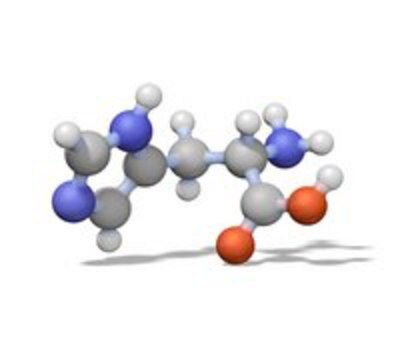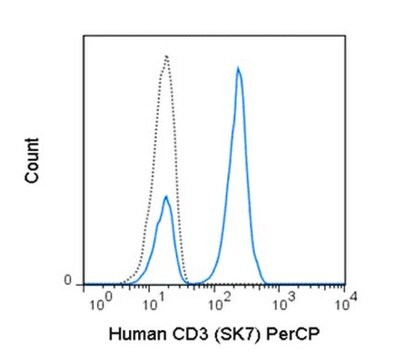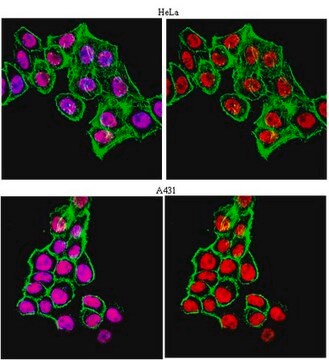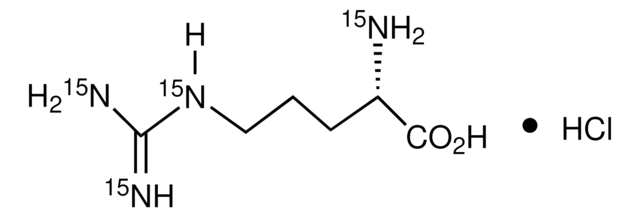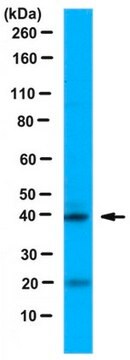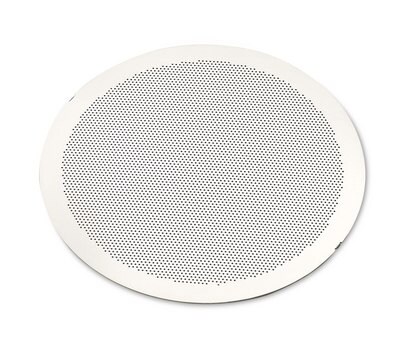05-988
Anti-Pras40 Antibody, Clone 73P21
clone 73P21, Upstate®, from mouse
Synonym(s):
40 kDa proline-rich AKT substrate, AKT1 substrate 1 (proline-rich), proline-rich Akt substrate, 40 kDa
About This Item
Recommended Products
biological source
mouse
antibody form
purified immunoglobulin
antibody product type
primary antibodies
clone
73P21, monoclonal
species reactivity
human
manufacturer/tradename
Upstate®
technique(s)
immunoprecipitation (IP): suitable
western blot: suitable
isotype
IgG1
NCBI accession no.
UniProt accession no.
shipped in
wet ice
target post-translational modification
unmodified
Gene Information
human ... AKT1S1(84335)
General description
Specificity
Immunogen
Application
Epigenetics & Nuclear Function
PI3K, Akt, & mTOR Signaling
Quality
Western Blot Analysis:
A 0.1-1.0 µg/mL dilution of this lot detected PRAS40 in RIPA lysates of HeLa cells.
Target description
Physical form
Storage and Stability
Handling Recommendations:
Upon first thaw, and prior to removing the cap, centrifuge the vial and gently mix the solution. Aliquot into microcentrifuge tubes and store at -20°C. Avoid repeated freeze/thaw cycles, which may damage IgG and affect product performance.
Analysis Note
RIPA lysates of HeLa cells.
Other Notes
Legal Information
Disclaimer
Not finding the right product?
Try our Product Selector Tool.
Storage Class Code
12 - Non Combustible Liquids
WGK
WGK 2
Flash Point(F)
Not applicable
Flash Point(C)
Not applicable
Certificates of Analysis (COA)
Search for Certificates of Analysis (COA) by entering the products Lot/Batch Number. Lot and Batch Numbers can be found on a product’s label following the words ‘Lot’ or ‘Batch’.
Already Own This Product?
Find documentation for the products that you have recently purchased in the Document Library.
Our team of scientists has experience in all areas of research including Life Science, Material Science, Chemical Synthesis, Chromatography, Analytical and many others.
Contact Technical Service